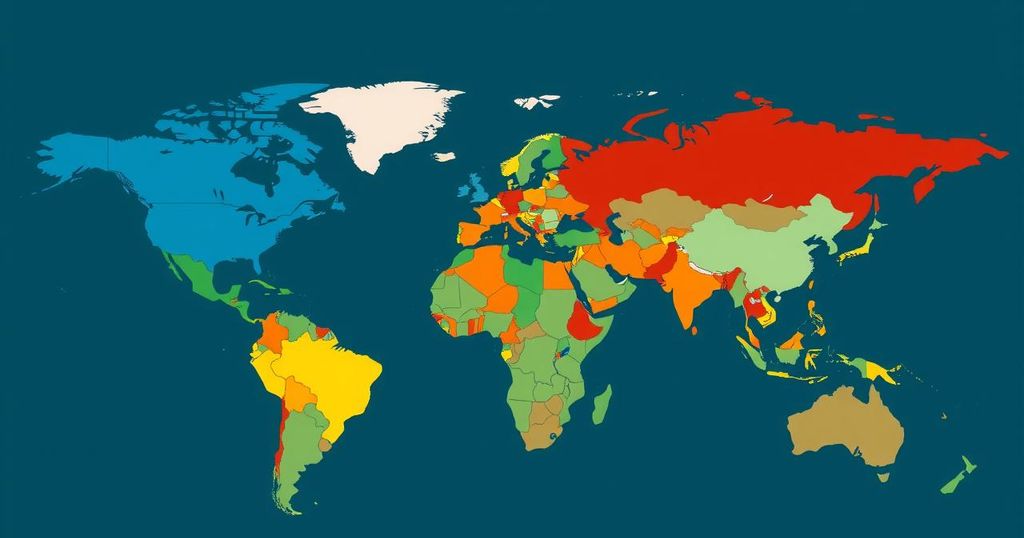Richer countries are beginning to compensate poorer nations for damages caused by climate change. Cyclone Freddy in 2023 led to significant suffering in Malawi, where families received crucial financial assistance to rebuild. The initiative is part of a broader commitment to support low-income countries facing the brunt of climate impacts, yet funding levels remain inadequate, prompting calls for urgent action at the COP29 climate summit.
The devastating impact of Cyclone Freddy in 2023 highlighted the urgent need for financial compensation for climate change-induced disasters affecting poorer nations. In Malawi, many families, including that of subsistence farmer Christopher Bingala, received one of the first “loss and damage” payments, enabling them to rebuild their lives after severe flooding. The initiative arose from a commitment made by wealthier countries to finance damages stemming from climate change, aimed at assisting nations that contribute the least to global emissions but suffer the most from extreme weather. Despite $720 million being pledged so far, climate experts urge that this amount will be insufficient to meet the escalating challenges posed by climate change.
At the ongoing COP29 climate summit in Baku, which seeks equitable recognition of damages owed to developing nations, Prime Minister Philip Davis of the Bahamas emphasizes the responsibility of industrialized nations to compensate those adversely affected by climate change, stating, “We just hope that the global north and the nations whose economy is fueled by the emissions – they come to the plate and take up their responsibility to look at what they’re causing us.” The trail of destruction left by Cyclone Freddy displaced 650,000 people, marking an alarming instance of the growing humanitarian crises tied to climate change.
Bingala, after losing his home, found temporary refuge but faced dire circumstances, eventually resorting to consuming the remains of dead animals. The funds he received from Scotland’s dedicated climate initiative, distributed through the non-profit GiveDirectly, allowed him to relocate and build a safer home, providing his family with a chance for a better future. The importance of such assistance, according to Yolande Wright of GiveDirectly, stems from the almost nonexistent safety nets in low-income nations facing climate-related disasters.
The loss and damage compensation scheme serves as a pilot program intended to address the needs of vulnerable nations disproportionately affected by climate change. However, most of the pledged funds remain unallocated, with further guidelines needed to direct resources effectively. Advocates stress that aiding in disaster recovery is just one aspect of the broader needs of these nations, particularly in relocating communities threatened by rising sea levels and preserving critical ecological resources.
The demand for loss and damage funding is poised to escalate, potentially reaching $250 billion annually by 2030, a reality underscored by Prime Minister Davis who connects national debt burdens directly to climate impacts. He warns that inaction will lead to dire consequences not only for vulnerable nations but also for those contributing to the climate crisis. In light of this, richer countries are urged to act with foresight, recognizing that rising sea levels and climate-induced challenges will ultimately affect global stability.
The article discusses the emerging trend of climate change compensation, specifically focusing on the “loss and damage” payments initiated for developing countries severely impacted by climate-induced disasters. Cyclone Freddy in 2023 exemplified the devastating effects of climate change on nations like Malawi, where infrastructure and livelihoods have been jeopardized despite their low contribution to global emissions. The concept of compensating low-income countries serves as part of a broader climate finance initiative, recognizing the inequities faced by nations most vulnerable to environmental changes. As the need for funding rises, discussions are ongoing regarding equitable distribution and the purpose of these financial resources.
In conclusion, the growing trend of compensating poorer nations for climate change damages highlights a significant step towards addressing the disparities faced by them. The urgent need for funding amid escalating climate-related disasters reinforces calls for wealthier countries to assume responsibility for their emissions’ consequences. As negotiations continue at international summits, it is imperative that tangible resources are allocated efficiently to support vulnerable communities, ensuring their survival and resilience amidst an uncertain future molded by climate change.
Original Source: www.kanw.com






